Brief psychotic disorder is an acute mental health condition that causes distressing symptoms such as hallucinations, delusions, and confusing speech. Symptoms of this disorder can appear suddenly and typically last for a short period of time. Depending on the length of time symptoms remain and the severity of those symptoms, someone who is suffering from brief psychotic disorder may benefit from receiving inpatient treatment.
While brief psychotic disorder is often shorter in duration than other mental health conditions that involve psychotic symptoms, the harm to a person’s emotional state, mood, judgment, and overall well-being can be severe.
When someone has brief psychotic disorder, they may benefit from professional treatment to help them meet their basic needs and remain physically safe while they are struggling with the symptoms of the disorder.
At East Tennessee Behavioral Health in Knoxville, Tennessee, we offer inpatient treatment for adults and adolescents age 13 and older who are suffering from psychotic disorders. We understand that each patient’s needs are unique and work to offer comprehensive services that consider a person’s full life, including family, values, and community.
Signs & Symptoms of Brief Psychotic Disorder
Symptoms of brief psychotic disorder might occur in response to a stressful event or trauma, or there may be no apparent stressor that leads to the disorder. The disorder can also occur during pregnancy or shortly after childbirth.
A key feature of brief psychotic disorder is the presence of at least one of the following symptoms:
- Delusions (strongly held false beliefs)
- Hallucinations (false perceptions of reality)
- Disorganized speech
Other signs and symptoms of brief psychotic disorder can include:
- Disorganized behavior
- Lack of responsiveness
- Memory difficulties
- Inability to make decisions
- Changes in sleep and eating patterns
- Difficulty maintaining self-care and hygiene
- Confusion
- Extreme changes in mood
Brief psychotic disorder symptoms can create a scary and bewildering experience for someone who is suffering from the disorder, as well as cause painful disruptions to the person’s functioning.
At our brief psychotic disorder treatment center, our qualified treatment team can assess your care needs and help you stabilize and manage your symptoms.
Brief Psychotic Disorder Statistics
The Diagnostic and Statistical Manual of Mental Disorders, Fifth Edition (DSM-5) estimates that brief psychotic disorder accounts for 9% of first-onset psychosis cases in the United States.
Brief psychotic disorder affects individuals across the lifespan, including during adolescence, and the average age of onset is in a person’s mid-30s. Additionally, brief psychotic disorder is more common among women than among men.
An article from the National Library of Medicine also presents the following prevalence data on brief psychotic disorder:
- Brief psychotic disorder may be more common among people who have a personality disorder.
- Brief psychotic disorder occurs more often in populations that experience high levels of stress, such as immigrant and refugee populations.
Effects of Brief Psychotic Disorder
If you believe that you are experiencing symptoms of brief psychotic disorder or a related condition, it’s important to seek treatment and receive the care you need. If left untreated, brief psychotic disorder can lead to a range of negative effects and further suffering.
Effects of brief psychotic disorder can include:
- Impairment at work, school, and home
- Negative consequences of acting in response to delusions
- Higher risk for suicidal behavior
- Lack of proper nutrition
- Problems with hygiene
- Emotional distress
- Consequences of poor judgment
Although the symptoms of brief psychotic disorder can be debilitating, outcomes for people who have the disorder and receive treatment are generally positive.
Therapies Used in Brief Psychotic Disorder Treatment
At East Tennessee Behavioral Health, our goal is to improve our patients’ health and well-being so that they can return to their regular lives.
To support patient healing, our care teams create individualized treatment plans that honor each person’s unique needs. When you receive care at our inpatient brief psychotic disorder treatment center, your personalized services might include:
- Basic medical care
- Medication management services
- Individual, family, and group therapies
Your treatment plan might also incorporate aspects of cognitive behavioral therapy (CBT), dialectical behavior therapy (DBT), and other evidence-based approaches as needed.
Why Seek Brief Psychotic Disorder Treatment
Getting treatment for brief psychotic disorder can offer several important benefits. First, it can help you manage your symptoms and minimize their impact on your life. It can also help you better handle stressors, work through traumas, and develop useful coping skills, helping to prevent symptoms from returning in the future.
Through treatment, you can also receive support to manage the scary, isolating, or confusing emotions that might arise as a result of having brief psychotic disorder.
Our inpatient brief psychotic disorder treatment center offers acute care for adults and adolescents age 13 and older. We can also provide treatment for co-occurring mental health disorders and addictions.
Choosing the Right Brief Psychotic Disorder Treatment Center
If you’re looking for brief psychotic disorder treatment, you may be wondering what questions to ask and what factors to consider when choosing a treatment center. Here are some questions to consider:
- Is the admissions process simple and straightforward?
- Will I have the chance to work with a multidisciplinary treatment team that can address my needs holistically?
- Will I receive specialized support and guidance when I leave treatment?
At East Tennessee Behavioral Health, we work to offer an efficient, supportive admissions process through which each patient can receive a comprehensive assessment that outlines their unique needs and goals. Our qualified treatment teams, which can include licensed therapists, physicians, nurse practitioners (NPs), and psychiatrists, work closely with patients to monitor treatment outcomes. The treatment teams also provide detailed discharge planning that may include recommendations for step-down treatment services, support groups, and more.
With specialized care, people who are suffering from brief psychotic disorder can experience relief from their symptoms, develop helpful coping strategies, and find healing.
This content was written on behalf of and reviewed by the clinical staff at East Tennessee Behavioral Health.















